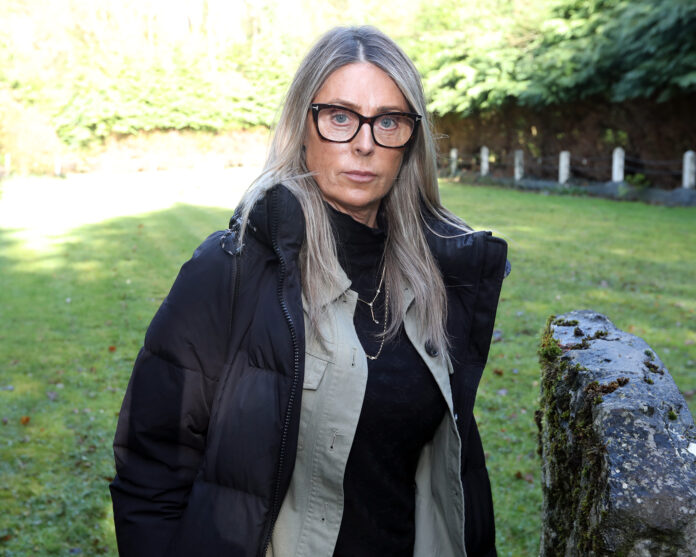
A LIMERICK survivor of a notorious mother and baby home has hit out that a recent report from government does nothing for the many women and children who want answers from an institution where the majority of pregnant women in the Mid West were sent.
Ann Connolly, born in Sean Ross Abbey in Roscrea, County Tipperary, said it is a “disgrace” that there is still no commitment to excavate a site and an underground tank at the former mother and baby home where survivors believe babies are buried.
The Corbally woman was speaking to the Limerick Post on foot of the publication by Minister for Children, Disability, and Equality, Norma Foley, of four reports relating to survivors of institutional abuse.
Ms Connolly is one of the We’re Still Here group campaigning for excavations at the former mother and baby home.
“The Minister has been in office since January 2025, she has never set foot in Sean Ross Abbey, yet every weekend there are survivors up there searching for answers,” Ann told this newspaper.
Ann is angry that the survivor redress scheme has made no change as yet to the curtailments for a payment, which is as little as €5,000.
“If you were born in one of these institutions and spent six months there, the government puts a price on that trauma of €5,000,” Ann said.
“You were taken from your mother, possibly trafficked and adopted out after living in one of those hellholes – that’s what the State says is worth €5,000.”
Nearly 1,500 children born in mother and baby homes in Ireland were used in vaccine trials over a 50-year period until 1973, without the consent of their parents.
Ann says that because many of these children within the homes were hospitalised, either as a result of the trials or because of adverse health conditions and high levels of infection within the institutions, they have been ruled out of any compensation.
Ann explained that if survivors spend any period shorter than six months in these institutions, or even a break in that time, under the scope of the scheme they are ruled out for compensation.
“The State and religious orders allowed pharmaceutical companies to carry out vaccine trials on vulnerable children in these institutions. Some of them ended up in hospital. If the child’s time was ‘broken’, even by being hospitalised, they don’t qualify for redress,” she said.
Ann has produced a copy of a letter sent to former Minister Roderick O’Gorman, seen by the Limerick Post, signed by 60 eminent psychologists, psychiatrists, and experts in childhood trauma stating that no timeframe can be put on the effects of trauma, even for a short period in very early childhood.
Ann is also campaigning for a full medical card for all survivors of mother and baby homes.
“Every time I go to the doctor or a hospital and I’m asked about medical background, I have nothing to give. And it’s not just about us – our children have no access to that history either,” she said.
Responding to the issue of time constrains, a spokesman for the Department said that the recent reports published “collectively provide a comprehensive picture of the issues of concern for survivors raised to both the Special Advocate in her first year, and through organised consultations in relation to the National Centre for Research and Remembrance”.
“In responding to these reports, the steering group for the National Centre has reviewed this report and committed to actions to address each theme and officials in the Department have prepared an initial response to the recommendations in the Special Advocate report alongside a commitment to continue engaging positively with her in relation to the issues raised.”
The Department spokesman concluded that “the underpinning legislation for the Payment Scheme provides for annual reports and two reviews to be produced. The first review into the operation of the scheme is required to be completed within six months of the scheme’s second anniversary – by September 2026. In the absence of these reports and reviews, it would be premature to consider changes to eligibility at this time.”


